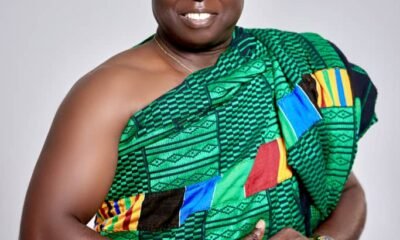Profile
Ayorkor Botchwey’s rise to top of Commonwealth, a major feat for Ghanaian diplomac

Shirley Ayorkor Botchwey
It was a great moment to savour on Monday when hundreds of Ghanaians welcomed Ms Shirley Ayorkor Botchwey, the newly elected Secretary-General of the Commonwealth.
Her arrival momentarily halted operations at the Kotoka International Airport (KIA) when she stepped out from the plane in the company of President Akufo-Addo.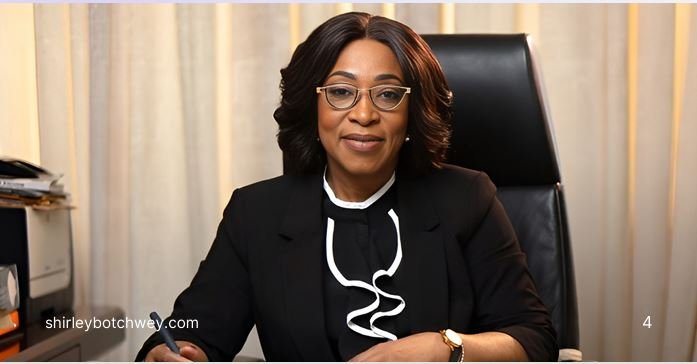
Among the large crowd to welcome her were representatives of the Ga Mantse, Nii Teiko Tsuru II, Ministers of State, Members of Parliament, New Patriotic Party (NPP) supporters and family members.
Addressing the crowd, the newly elected Secretary-General of the Commonwealth, Ms Shirley Ayorkor Botchwey, has promised to provide the needed leadership to combat climate change which presents a clear existential threat to all.
That, she hopes to achieve by working closely with member states and other multilateral institutions.
“I shall harness opportunities for transformation and enhance our global voice,” she stated.

The exercise was held in Apia, Samoa where she was elected as the Secretary-General of the Commonwealth.
She pledged to build on the work which had been done by the staff of the Secretariat and their partners which had made it possible for the Commonwealth to open new chapters in the shared journey towards deepening democracy, peace, prosperity and economic progress.
The Secretary-General elect also said the Commonwealth with 56 countries had a combined population of 2.7 billion people, with 60 per cent being young people, with 33 out of the 56 being small islands developing states and small states, stressing that, “It is diverse and I’m inspired by the resilience of our member states. We come from different nations and cultures, but we share a Commonwealth of values.”
Additionally, she said her vision was to build on these strengths, promote trade and ensure education, skills training, development and innovation for the teeming numbers.
The election was held at the 27th Commonwealth Heads of Government Meeting (CHOGM) in Apia, Samoa, held on October 21-26, 2024.
Ms Botchwey contested against Joshua Setipa of Lesotho and Dr Mammadou Tangara of the Gambia.
This makes Ms Botchwey the first African woman and Second African national to hold this prestigious position.
She would succeed Baroness Patricia Scotland of the United Kingdom on April 1, 2025 embarking on a five year term as a Secretary-General.
Ms Botchwey brings to the role an impressive background as a lawyer, diplomat, and communication professional.
She has served as Ghana’s Minister of Foreign Affairs and Regional Integration for eight years during which she led Ghana’s notable two-year tenure on the UN Security Council.
Her service includes chairing the ECOWAS Council of Ministers for two terms (2020-2022), four terms as a legislator (2004- 2020), and membership in the ECOWAS parliament.

In campaigning for the position, Ms Botchwey proposed six areas to reposition the organisation to respond to the expectations of the 2.7 billion people across the Commonwealth for a decent and fulfilling life.
These were to enhance democracy; strengthen Commonwealth values and realise the democratic dividend; and increase trade and investment cooperation.
The rest are promoting youth, education, skills, innovation and startups; enhancing advocacy in mitigating the impact of climate change, especially on small Island developing states and small states; as well as effectively managing resources for an effective Commonwealth institution.
President Akufo-Addo described Ms Botchwey’s election as an honour that required the support and prayers of all Ghanaians.
Ms Botchwey, he noted, was the first African woman to lead in the history of the organisation, stressing that it was not going to be an easy task because of where we are in human history, with a lot of difficulties ahead.
“But I have absolutely no doubt that you have the qualities necessary to enable you to succeed as Secretary General of the Commonwealth,” President Akufo-Addo stated.
President Akufo-Addo further noted that it was the qualities of competence, hard work, diligence, honesty, and of commitment that drew the massive global support for Ms Botchwey’s candidature for the prestigious office.
“She’s done a yeoman’s job for us as Foreign Secretary. Foreign Secretary, Chairperson of the ECOWAS Council of Ministers, and several other important international assignments have been very well delivered by this… I still call her a young lady,” he said.
“Let’s all stand together behind her and push her to do a very good job for our country. She now flies the flag of Ghana on the global stage in a way which has not been done since our late, revered diplomat, Kofi Annan, who was Secretary General of the United Nations,” he concluded.
Ms Botchwey has since her election received congratulatory messages as well as well-wishes from friends around the world.
The well-wishers included President Nana Addo Dankwa Akufo-Addo, Vice President, Dr Mahamudu Bawumia, AU High Representative for Silencing the Guns in Africa, Dr Mohamed Ibn Chambas, Nigeria’s president, Bola Ahmed Tinubu, and outgoing Secretary-General, Baroness Patricia Scotland.
President Akufo-Addo, in a Facebook post, praised Ms Botchwey’s character and dedication to service. Ms Botchwey was her deputy when he served as Foreign Minister in the President J.A Kufour-led government.
“For years, I have watched her serve Ghana, Africa and the international community with unshakeable commitment and grace,” he stated.
The President expressed confidence that her leadership would guide the Commonwealth toward “a future of hope and unity.”
Vice President, Bawumia, took to social media to share his congratulations, writing: “Minister Shirley Ayorkor Botchwey, I am happy with the news about your election as the new Secretary-General of the Commonwealth. Congratulations on making Ghana proud. Keep shining, and I know you will excel as always.”
According to a Ghana News Agency (GNA) report, Dr Chambas described her election as “a victory for Ghanaian diplomacy.”
Speaking from an AU Retreat in Abidjan, he emphasised that this achievement represents not just personal success but also recognition of African women’s capabilities.
Having worked on Ms Botchwey’s campaign in the Caribbean and Pacific Island countries, he expressed particular satisfaction with the outcome.
Nigeria’s President, Bola Tinubu, through his adviser on Information and Strategy, highlighted Ms Botchwey’s extensive career in Public Administration and Foreign Affairs as perfect qualifications for the role.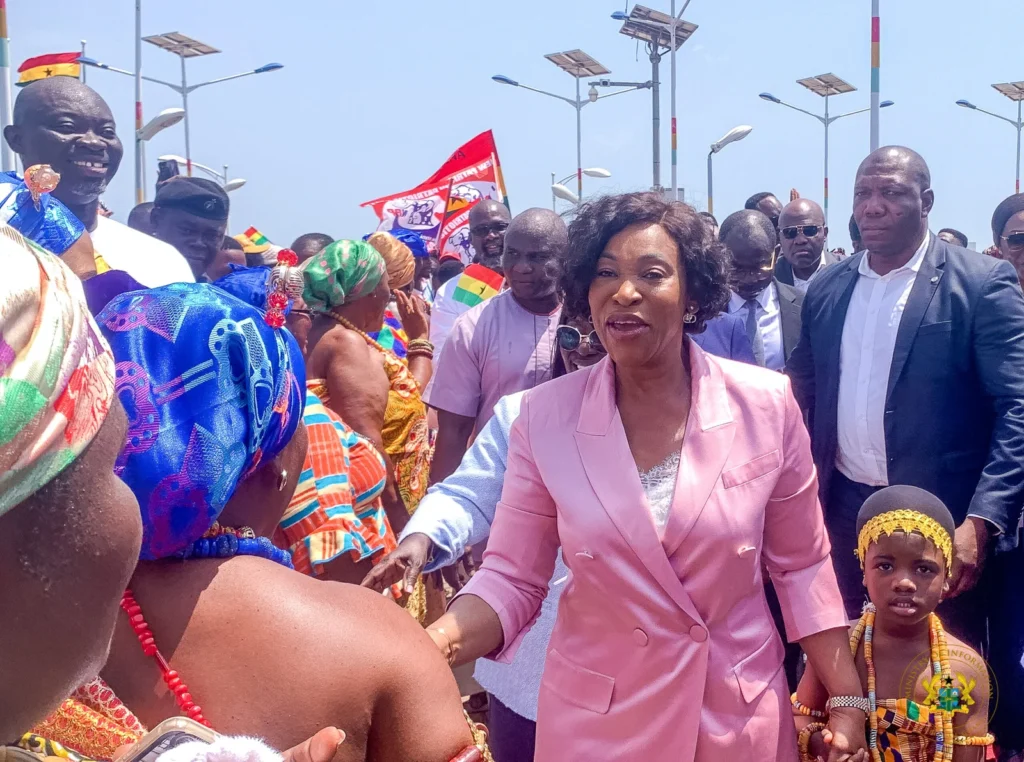
He expressed optimism about working with her to advance the Commonwealth’s vision and strengthen intra-commonwealth trade, particularly emphasising support for an African bid for permanent representation at the UN Security Council.
The outgoing Secretary-General, Baroness Patricia Scotland, warmly welcomed her successor in a social media post, stating: “It is my honour to pass the baton to my dear sister… She will be uniquely blessed, as I have been, to hold this office and serve our precious Commonwealth.”
By Jemima Esinam Kuatsinu
Profile
Autism Awareness Care & Training: Pioneering autism care, inclusion in Ghana
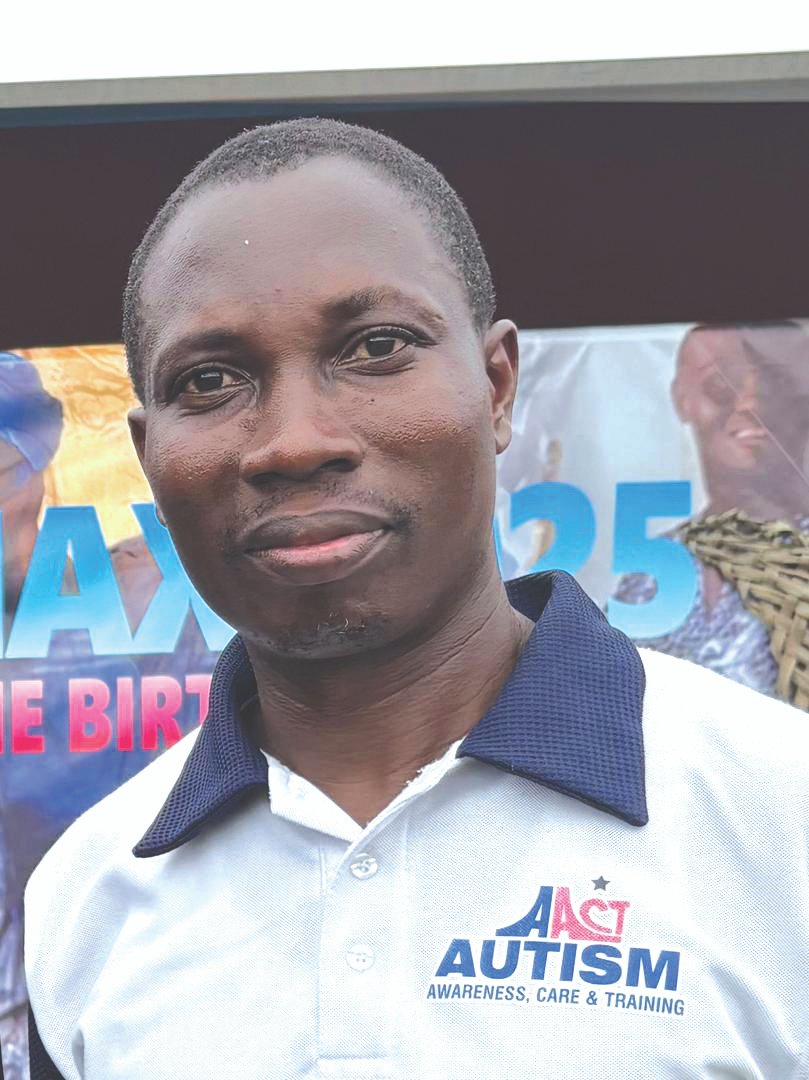
AUTISM Awareness Care and Training (AACT) is Ghana’s first autism-focused centre, playing a pioneering role in the care, education, and advocacy for children on the autism spectrum and their families.
Established in 1998, AACT began as a parent-support and training initiative at a time when autism was poorly understood in Ghana. Many families raising autistic children faced stigma, isolation, and limited access to information or professional assistance.
Over the years, the organisation has evolved into a full-fledged autism care and training centre, responding to the growing demand for specialised services and sustained nationwide awareness.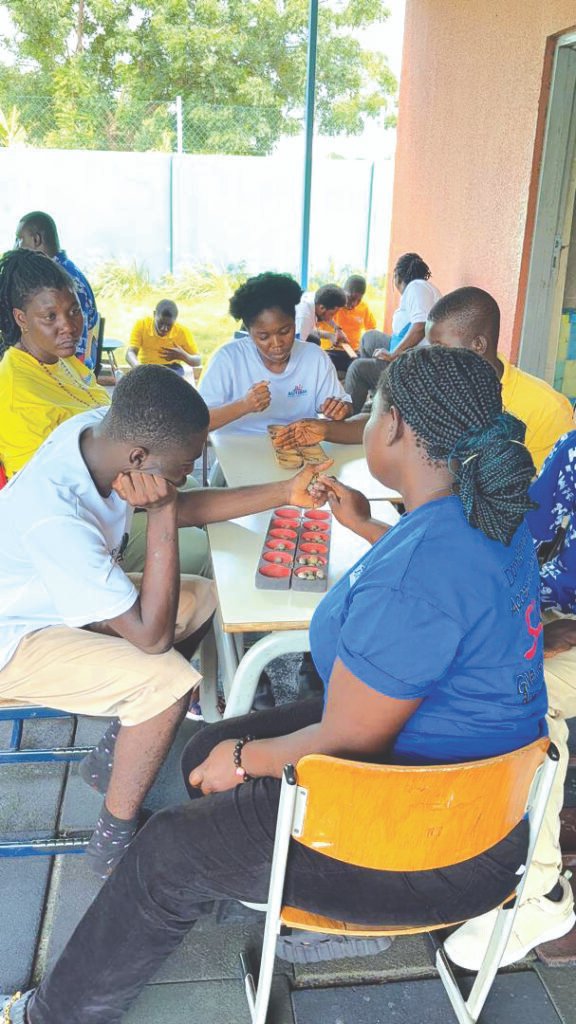
AACT is currently located in Haatso, Accra, where it operates a structured day programme serving about 25 learners daily. The centre provides a safe, inclusive, and supportive environment where children with autism are guided to develop essential life, social, and functional skills.
Programmes at the centre focus on independent living skills, vocational and pre-vocational training, functional academic skills, and therapeutic interventions. These activities are tailored to the individual needs of each learner, recognising that children on the autism spectrum learn and develop at different paces.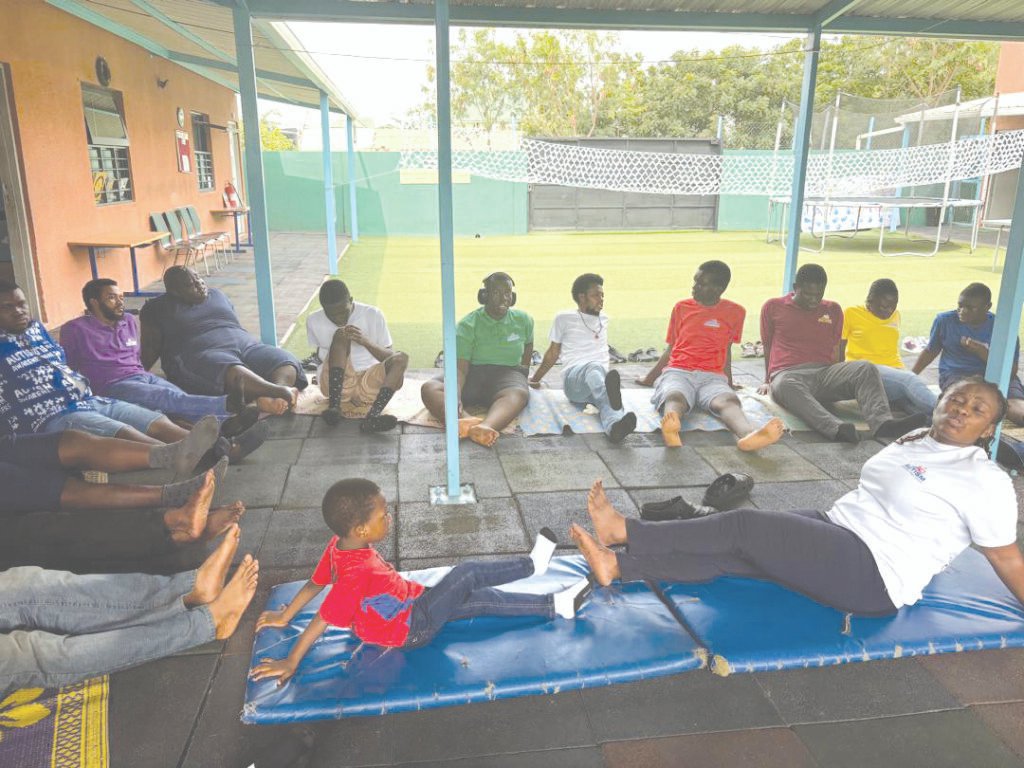
According to Abeiku Grant, Head of Programmes at AACT, the centre’s philosophy is centred on ability rather than limitation.
“Every autistic child is different,” he said. “Our work is to support them at their own pace and help them discover what they can do, not to focus on what they cannot do.”
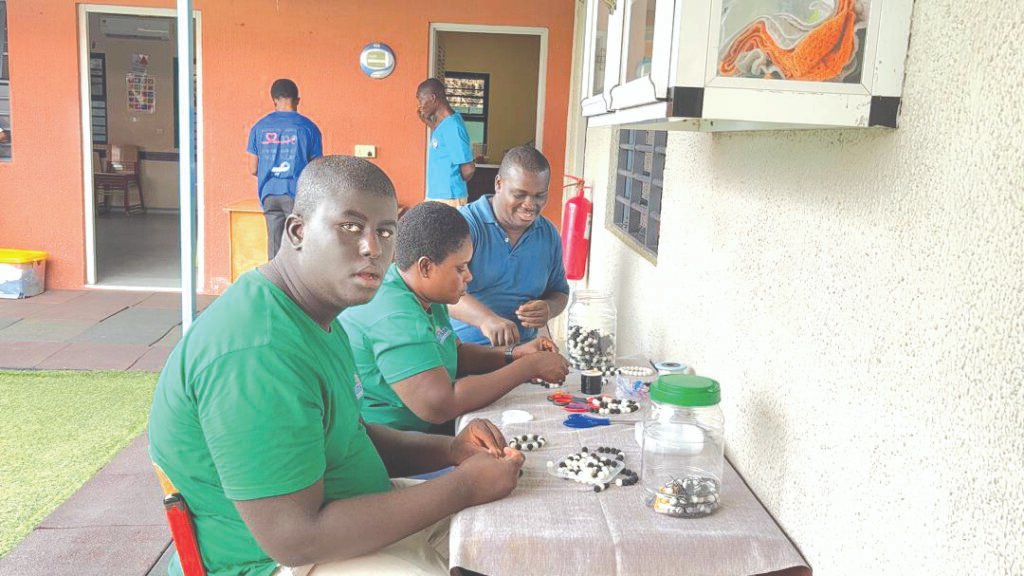
Beyond centre-based services, AACT places strong emphasis on autism awareness and advocacy, particularly within schools and communities. Many children with autism in Ghana continue to face rejection and exclusion due to stigma, misinformation, and the lack of trained personnel in educational institutions.
In 2025, AACT reached over 20 schools across the country, providing autism education to teachers, students, and school administrators.
The organisation also runs free teacher training programmes, equipping educators with practical knowledge and basic tools to support autistic learners in inclusive classroom settings.
“Many schools tell us they are not resourced or trained to handle autistic learners,” Mr Grant explained. “Instead of waiting for change, we decided to go to them and train teachers for free.”
AACT also engages learners directly, addressing widespread misconceptions about autism, including the false belief that autism is contagious or caused by bad parenting. These outreach programmes aim to build empathy among students and promote peer support for autistic learners in mainstream schools.
Another major challenge confronting families is limited access to autism services, especially outside Accra. With most autism centres concentrated in the capital, many families from other regions are forced to travel long distances or keep their children at home due to cost, stigma, or lack of support.
“Education is not meant only for typical children,” Mr Grant stressed. “Children with autism also have the right to education and care. No child should be hidden because of lack of understanding or opportunity.”
As part of its outreach work, AACT supports parents to overcome stigma and encourages social interaction for children with autism, believing that community engagement is essential for development and confidence building.
In December 2025, the centre received what it described as its largest donation of the year, raised by children from the Unmasked Mentoring initiative. According to the organisation, the donation was particularly significant as it demonstrated empathy and social responsibility among young people.
As a non-governmental, non-profit organisation, AACT depends largely on donations, partnerships, and goodwill to sustain and expand its work. Current needs include a minibus for community-based social activities, expansion of its facility to accommodate more learners, sponsorship support for children from financially challenged families, and funding to scale autism awareness programmes nationwide.
Looking ahead, AACT envisions a Ghanaian society that is inclusive, informed, and supportive of persons with autism.
“Our goal is a Ghana where children with autism are accepted and supported,” Mr Grant said. “Every child has potential. All they need is understanding, opportunity, and care.”
By Esinam Jemima Kuatsinu
Join our WhatsApp Channel now!
https://whatsapp.com/channel/0029VbBElzjInlqHhl1aTU27
Profile
Northern Ghana FOTO Festival celebrates culture, history with over 600 images

If you found yourself in Tamale last weekend, you would have stepped into an atmosphere alive with colour, rhythm and memory. The maiden Northern Ghana FOTO Festival did not feel like a typical exhibition; it felt like a cultural awakening.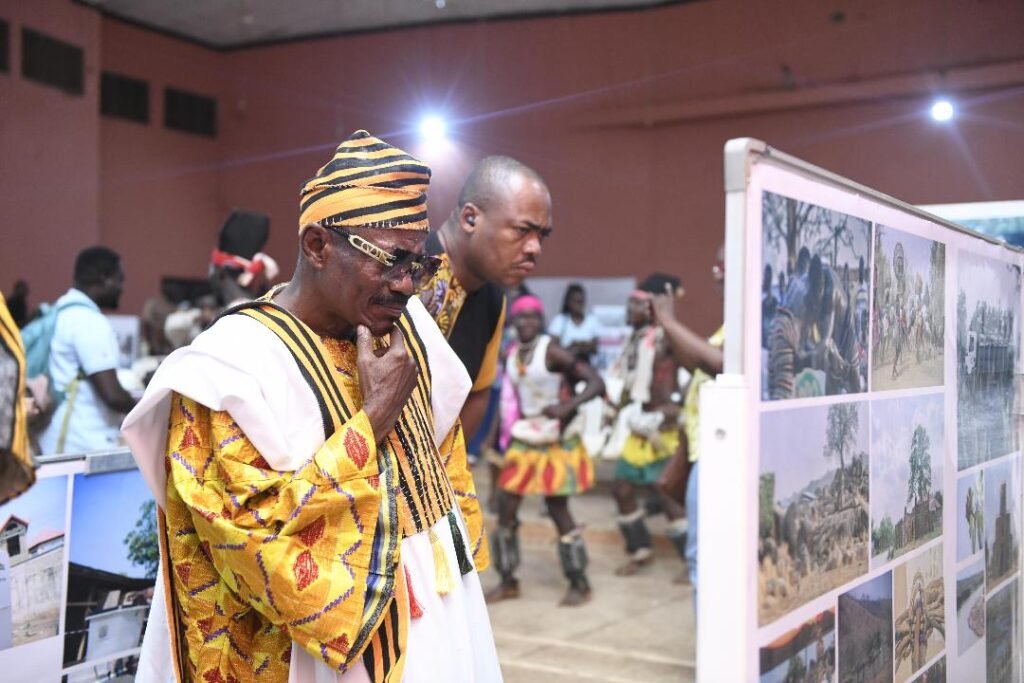
Between rows of tall white panels displaying hundreds of striking images, a cultural troupe danced their way through the space, their drumming rolling through the hall like a heartbeat. The dancers’ movements fluid, bold, traditional, created a living bridge between the past and the photographs surrounding them.
Not far from the performers, chiefs in their elegant traditional regalia paused thoughtfully before portraits capturing festivals, rituals and everyday life. This immersive scene set the tone for the Northern Ghana FOTO Festival, which opened in Tamale with a resounding call for cultural preservation through visual storytelling.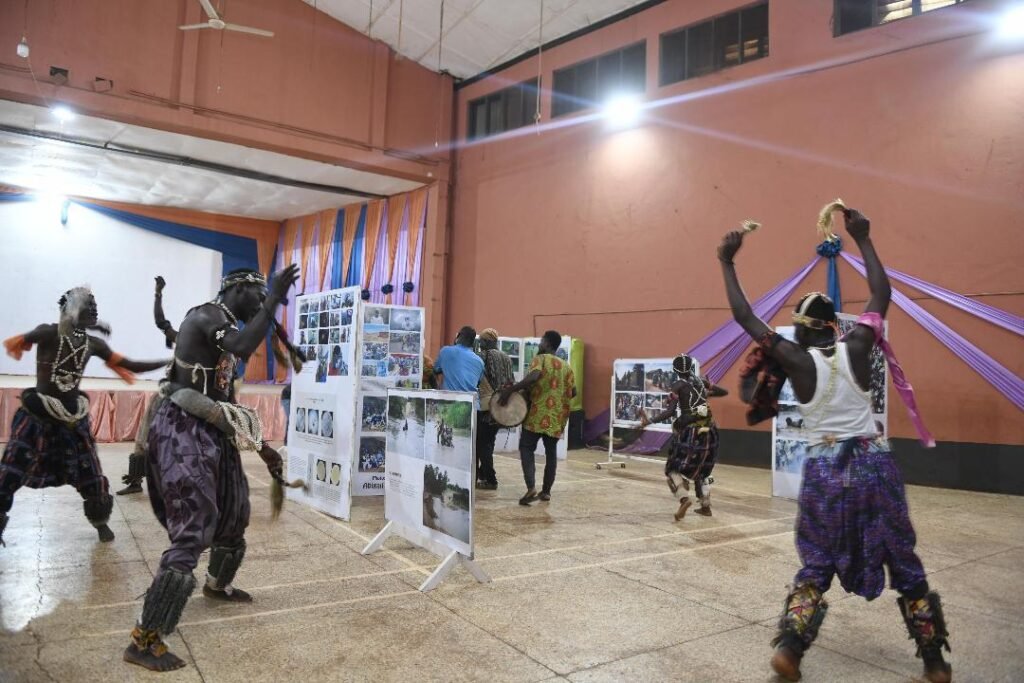
The event gathered photographers, cultural advocates, scholars and traditional leaders to celebrate the narratives, traditions and identities that shaped northern Ghana. Originally launched with a call for just 30 photographic entries, organisers were overwhelmed with more than 600 images submitted by over 60 contributors from across the five northern regions.
The range of submissions from seasoned photographers and emerging artists to passionate hobbyists formed a vivid collective portrait of the region’s past and present. The opening ceremony amplified the festival’s cultural spirit with traditional drumming, dancing and performances that reflected the rich heritage the exhibition sought to highlight.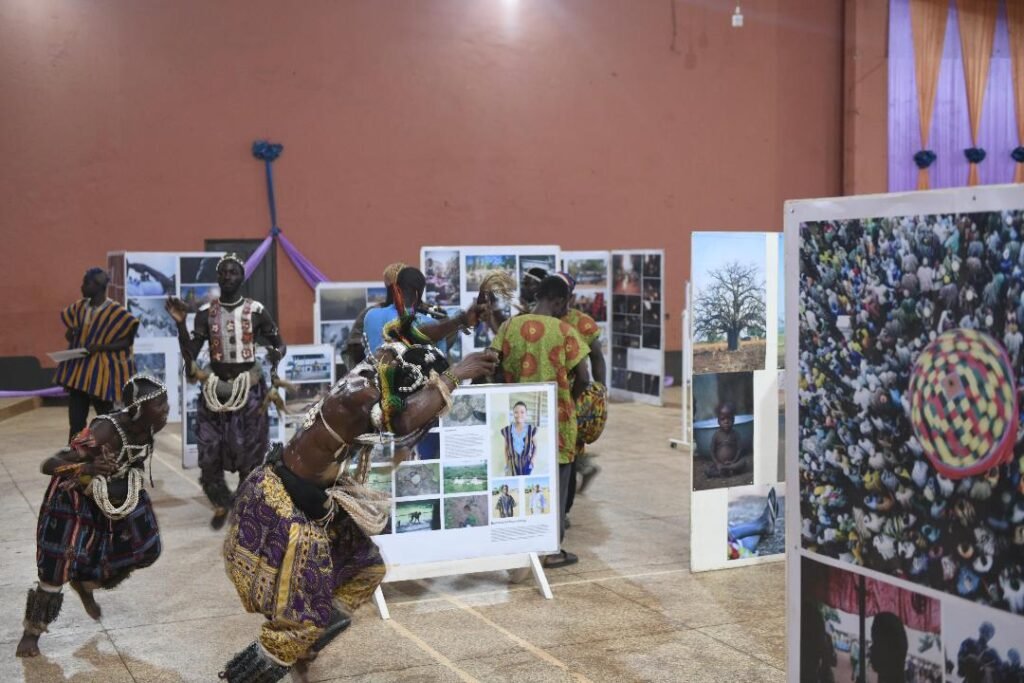
Chairperson for the event, Prof. Elliot Haruna Alhassan, Pro Vice-Chancellor of the University for Development Studies (UDS), described photography as a crucial tool for documenting Ghana’s cultural evolution. He emphasised that visual storytelling is becoming indispensable in safeguarding customs, values and community memory.
The Guest of Honour and former Rector of Tamale Technical University, Prof. Salifu Asuro, praised the organisers for creating a platform that elevates the cultural identity of northern Ghana. He encouraged public and private institutions to support creative arts initiatives, noting their significant role in national development.
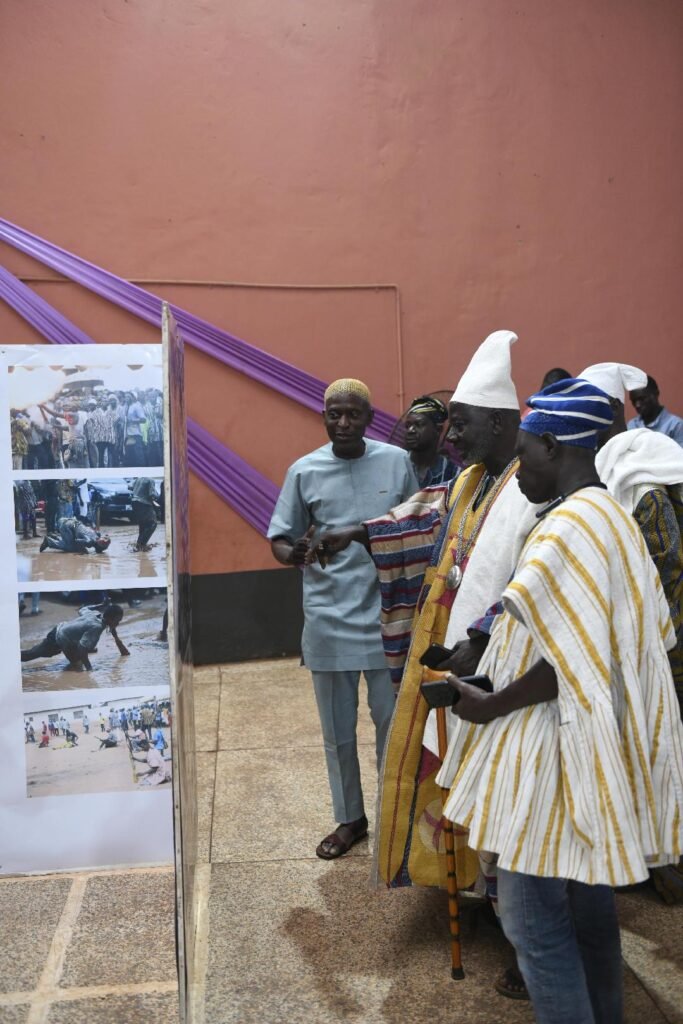
Traditional authorities played a central part in the ceremony. Representatives from the Gukpe Naa and Dakpemaa palaces including Naa Prof. Abdul-Rahaman Issahaku, Chief of Gbanyamle and senior faculty member at UDS, as well as the Chief of Bunbong, Uborr Wumbe Dawuni—commended the festival for fostering cultural continuity and encouraging younger generations to reconnect with their roots.
Speaking on behalf of the Northern Regional Director of the Ghana Tourism Authority, Mr Owusu-Boakye Frank, Senior Standard and quality assurance officer assured the Authority’s commitment to supporting cultural tourism. He stressed that visual storytelling, when harnessed effectively, has the potential to attract visitors, preserve cultural assets and strengthen community identity. He pledged the Authority’s collaboration in future editions to position northern Ghana as a vibrant hub for creativity and heritage.
One of the festival’s major highlights was a panel discussion on the theme: “Preserving Culture, History and Community through Visual Storytelling.” Chiefs, scholars and cultural experts explored the importance of visual documentation as a tool for intergenerational education, emphasising photography’s ability to create a timeless cultural archive.
Team Lead of Foto4Change and convener of the festival, Mr Geoffrey Buta, said the initiative seeks to strengthen cultural conservation efforts through photography. “Our forebears relied on oral tradition to preserve history,” he noted. “Today, visual storytelling enables us to continue that work in a more permanent and accessible form.”
Mr Buta announced plans to transform the festival into a rotational exhibition that will travel across northern Ghana, giving more communities access to the growing visual archive. He added that the event would be institutionalised as an annual celebration of culture, research and artistic dialogue.
The displayed photographs captured festivals, landscapes, portraits, rituals and everyday life offering a colourful, honest and layered view of northern Ghana’s cultural richness. Organisers expressed optimism that with sustained institutional support, the Northern Ghana FOTO Festival could evolve into a major cultural event capable of attracting both national and international attention, while preserving the heritage and stories that make the region unique.
By Spectator Reporter

